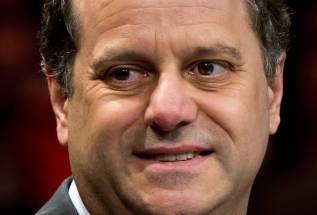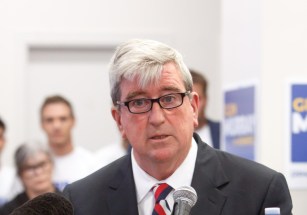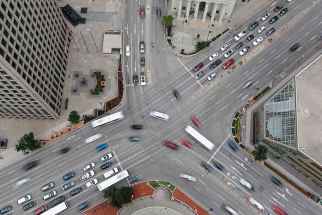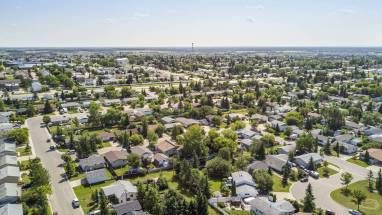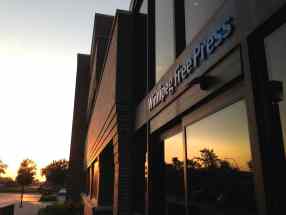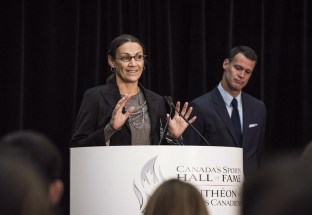Murray thinking outside the frozen municipal-funding box Former mayor’s proposal to tap into PST revenue could be right idea at especially opportune time in campaign
Read this article for free:
or
Already have an account? Log in here »
To continue reading, please subscribe:
Monthly Digital Subscription
$0 for the first 4 weeks*
- Enjoy unlimited reading on winnipegfreepress.com
- Read the E-Edition, our digital replica newspaper
- Access News Break, our award-winning app
- Play interactive puzzles
*No charge for 4 weeks then price increases to the regular rate of $19.00 plus GST every four weeks. Offer available to new and qualified returning subscribers only. Cancel any time.
Monthly Digital Subscription
$4.75/week*
- Enjoy unlimited reading on winnipegfreepress.com
- Read the E-Edition, our digital replica newspaper
- Access News Break, our award-winning app
- Play interactive puzzles
*Billed as $19 plus GST every four weeks. Cancel any time.
To continue reading, please subscribe:
Add Free Press access to your Brandon Sun subscription for only an additional
$1 for the first 4 weeks*
*Your next subscription payment will increase by $1.00 and you will be charged $16.99 plus GST for four weeks. After four weeks, your payment will increase to $23.99 plus GST every four weeks.
Read unlimited articles for free today:
or
Already have an account? Log in here »
Hey there, time traveller!
This article was published 14/10/2022 (1150 days ago), so information in it may no longer be current.
Throughout the City of Winnipeg’s civic election campaign, voters and intrepid journalists charged with following every pledge have been waiting for mayoral candidates to explain how they will pay for their grandiose ideas. Most have made a stab at doing just that.
But to date, only a handful of candidates have confronted the issue that is really at the heart of almost all of the city’s challenges: revenue.
There’s nothing wrong with pledging to make the city run smoother and more cost-effectively. But saving money through efficiencies is no way to pay for the big-ticket challenges facing the city. It’s throwing pennies at problems measured in hundreds of millions of dollars.
Saving money through efficiencies is no way to pay for the big-ticket challenges facing the city.
Scott Gillingham, a veteran city councillor, proposed targeted property-tax and frontage-levy increases to help pay for mega infrastructure projects. His proposal cleverly and appropriately claws back some of the rebates the Progressive Conservative provincial government is providing for the education portion of property taxes.
In a similar vein, Shaun Loney has also proposed dedicated annual property-tax increases and review of the development-fee initiative that Mayor Brian Bowman introduced and ultimately abandoned so that “growth pays for growth.”
More recently, former mayor Glen Murray has taken Gillingham and Loney’s opening bids and raised them both with a proposal to grab a share of provincial retail sales-tax revenue.
Murray said his proposal would guarantee Winnipeg a net $200-million increase in revenue, which would eliminate the need need for property-tax hikes. He comes to that number by taking a one-point share of PST, which is currently about $340 million, and deducting the $121.2-million operating grant the city currently receives, which would be eliminated under this plan.
MIKE DEAL / FREE PRESS FILES Glen Murray has proposed to grab a share of provincial retail sales-tax revenue.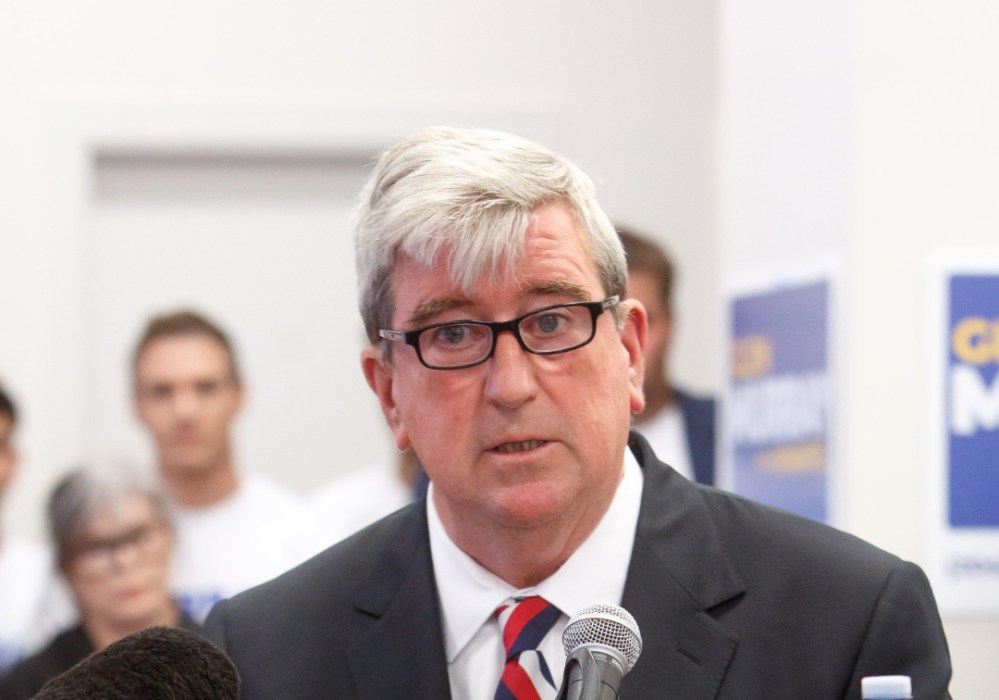
This fiscal game-changing proposal has both practical and political benefits for Murray at this stage of the campaign.
In practical terms, a dedicated share of a growth tax such as the PST is a fair and progressive way to fund local government. Cities and towns have enormous costs related to services but limited sources of revenue. Provincial governments — which by legislation control municipalities — rarely, if ever, approve plans for local government to introduce new revenue streams.
As a result, municipalities are left at the mercy of provincial governments which, depending on their own fiscal challenges, often cut that support.
The current PC government has frozen municipal operating grants for seven years now. Municipalities — by law they are not allowed to run budget deficits — are forced to cut services, raise what taxes they do have control over and raid valuable reserve accounts.
The current PC government has frozen municipal operating grants for seven years now.
The insult to the frozen operating grants injury has come from watching the Tory government cut taxes by $1.2 billion annually while starving municipalities of much-needed revenue.
The Tories have essentially used austerity in most of their major programs, including support to municipalities, to fund tax cuts that have left our cities and towns in a state of fiscal crisis. Those tax cuts have much less value to the average Manitoban when their local decision-makers are forced to raise taxes and fees to deal with the frozen grants.
For those who are still not convinced, there is precedent for Murray’s pledge.
The federal government already provides a dedicated portion of gasoline taxes to municipalities each year. In the last fiscal year, $2 billion flowed to 3,600 municipalities to fund specific infrastructure projects. Ottawa also provides a full rebate to municipalities for the GST.
In the United States, many large cities either share in or have their own dedicated sales taxes to fund operations and infrastructure.
In the United States, many large cities either share in or have their own dedicated sales taxes to fund operations and infrastructure.
Politically, this idea could provide a valuable benefit to Murray with less than two weeks to go before the election.
In the short term, the PST pledge could serve as a significant distraction from the allegations of sexual harassment he faced last month. Nobody will, or should, forget what’s been said about his workplace behaviour. But this is an idea that showcases the best of what Murray brings to the table as a mayoral candidate: his capacity to think big and come up with potentially game-changing ideas.
Many observers, critics and opponents will dispute the viability of any PST-sharing pledge. But a window of opportunity on that front could be opening in the next year.
Manitobans go to the polls next fall for a general election that, if current polling numbers can be relied upon, would see the NDP returned to power. Although it’s hard to accurately forecast either the result of next fall’s election, or the appetite of a new government to share PST revenue, it opens the door to a conversation that is simply not available to Winnipeg’s mayor at the moment.
In politics, true progress is achieved when a whole bunch of stars start to align.
It also deserves to be mentioned that if — big ‘if’ right now — the NDP form government, they will likely do it with a near sweep of seats in Winnipeg. That instantly gives the new government a political imperative of its own to find a new and sustainable funding formula for the capital.
There is still way too much uncertainty in the mayoral campaign to make an accurate prediction. But in politics, true progress is achieved when a whole bunch of stars start to align.
A new mayor and a new provincial government with an interest in helping, rather than hurting, municipalities certainly align two of the most important stars.
dan.lett@winnipegfreepress.com

Born and raised in and around Toronto, Dan Lett came to Winnipeg in 1986, less than a year out of journalism school with a lifelong dream to be a newspaper reporter.
Our newsroom depends on a growing audience of readers to power our journalism. If you are not a paid reader, please consider becoming a subscriber.
Our newsroom depends on its audience of readers to power our journalism. Thank you for your support.


